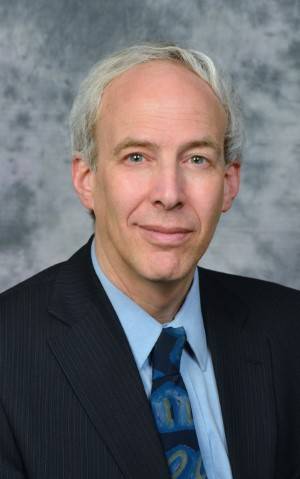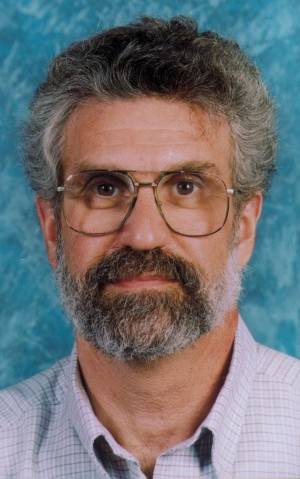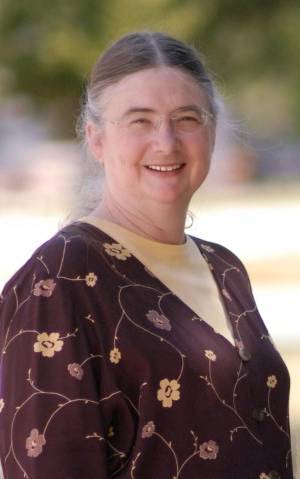Administrative Core
This core provides leadership and administrative structure to support DaCCoTA with the goal of fostering collaborations and enhancing productivity.
Administrative Core Faculty
Marc Basson, MD, PhD, MBA - Director and Lead PI of the DaCCoTA

Dr. Basson received his MD from the University of Michigan, his PhD from Yale University,
and his MBA from Wayne State University. Dr. Basson is Senior Associate Dean for Medicine
and Research and a Professor in the Departments of Surgery, Biomedical Sciences, and
Pathology at UND, which makes him uniquely suited for his role as center director/PI
since he is an active clinician and investigator with strong administrative expertise
and direct links to many of our partner institutions. Dr. Basson manages all aspects
of the implementation and function of the DaCCoTA including the following: 1) oversight
of all administrative, strategic, academic, operational, and financial functions;
2) control over space and resource allocation to the DaCCoTA; 3) relationships with
all partner institutions; 4) interaction with NIH Program Officers including providing
information on progress and any changes; 5) maintenance of all functions and cores;
and 6) encouraging new investigators to pursue CTR.
Barry Milavetz, PhD - Co-Director of the Administrative Core

Dr. Milavetz received his PhD in chemistry from the University of Illinois and completed a postdoctoral fellowship in molecular biology at the Roswell Park Memorial Institute in Buffalo, NY. He has extensive experience working with the SV40 model system and has developed a number of techniques to investigate the co-localization of various proteins and histone modifications. Dr. Milavetz believes that as a scientist it is his responsibility to help to train the next generation of biomedical researchers, not just focusing on technical procedures but also emphasizing problem solving skills and the responsible conduct of research. As co-director of the Administrative Core, Dr. Milavetz assists Dr. Basson in all aspects of the implementation and function of the DaCCoTA.
Mary Ann Sens, MD, PhD - Co-Director of the Administrative Core

Dr. Sens is a clinical scientist, Chester Fritz Distinguished Professor, and chair of the Department of Pathology. She received her MD and PhD from the University of South Carolina and is recognized as an expert in the area of cancer development, particularly breast, bladder, and prostate cancer. Work from her laboratory has led to several important findings including the identification of the role of heavy metals in inducing and promoting cancer. Throughout her career, Dr. Sens has shown the willingness and ability to extensively mentor trainees, as well as junior and senior colleagues. As co-director of the Administrative Core, Dr. Sens works closely with Dr. Basson and Dr. Milavetz to coordinate DaCCoTA activities and encourage new investigators to pursue clinical and translational cancer research.
External Advisory Committee
Our External Advisory Committee (EAC) consists of experts from various fields related to clinical and translational cancer research. They meet quarterly to assist and advise the Director of the DaCCoTA. The EAC evaluates the scientific progress of the DaCCoTA, provides advice (in writing) on how to be successful as individuals and as a group, and works with the Director, the Internal Advisory Committee, and Steering Committee to evaluate each core yearly, prioritizing and reallocating resources if necessary.
Mary Wakefield, PhD, RN, FAAN
Dr. Wakefield is the Visiting Distinguished Professor in the Practice of Health Care at Georgetown University and also a Visiting Professor and Distinguished Fellow at the University of Texas at Austin. In March 2015, she was named by President Barack Obama to serve as the Acting Deputy Secretary of the U.S. Department of Health and Human Services (HHS), the second most senior position in the Department. Dr. Wakefield has extensive academic experience, including serving as Associate Dean for Rural Health at the University of North Dakota School of Medicine and Health Sciences; Director of the Center for Health Policy, Research and Ethics at George Mason University in Fairfax, VA; and as a faculty member and area chair in the College of Nursing at the University of North Dakota. Additionally, she worked on site as a consultant to the World Health Organization's Global Programme on AIDS in Geneva, Switzerland.
David Carpentieri, MD
Dr. Carpentieri is the Section Chief of Clinical Chemistry, Therapeutic Drug Monitoring, Point of Care Testing, and Urinalysis as well as Medical Director of the Biorepository at Phoenix Children's Hospital. He is also an Associate Professor of Clinical Pathology and Pediatrics at the University of Arizona College of Medicine in Tucson, AZ, and Medical Director for Beacon Biomedical Inc. in Phoenix, AZ. Dr. Carpentieri has published numerous studies of various childhood cancers and serves on multiple committees at Phoenix Children's Hospital and the University of Arizona College of Medicine.
Twyla Baker, PhD
Dr. Baker is the President of Nueta Hidatsa Sahnish (Tribal) College in New Town, ND. She is an alumna of Nueta Hidatsa Sahnish College (NHSC) and the University of North Dakota. Dr. Baker holds a Bachelor of Science degree in environmental geology and technology, a Master of Science degree in education, and a PhD in teaching and learning research methodology. Prior to her appointment as president of NHSC, Dr. Baker served as the director of the National Resource Center on Native American Aging at the University of North Dakota.
Dorothy Rhoades, MD, MPH
Dr. Rhoades is the Director of American Indian Cancer Research Initiatives at the Stephenson Cancer Center at the University of Oklahoma where she works with cancer center researchers and leadership to explore outreach strategies and research opportunities in collaboration with Oklahoma tribal communities. Dr. Rhoades’s past research has focused on expanding partnerships with American Indian communities, equipping American Indian investigators for successful research careers, and promoting a program of research that holds promise for reducing the disparities in health status and care within these special populations.
Matthew Rizzo, MD, FAAN
Dr. Rizzo is the Professor and Chair of the Department of Neurological Sciences at the University of Nebraska Medical Center (UMNC), Co-Director of the Nebraska Neuroscience Alliance, and Director of the Great Plains IDeA CTR Network. Prior to joining the UNMC faculty in April 2014, Dr. Rizzo was a Professor of Neurology at the University of Iowa College of Medicine; Vice Chair of Transitional and Clinical Research, Department of Neurology at the University of Iowa College of Medicine; and also the Director of the Aging Brain and Mind Initiative, Office of Provost at the University of Iowa. Currently, Dr. Rizzo is seeing patients with Memory Disorders and participating in several studies related to addressing behavioral consequences of aging and neurological disorders.
John Tomaszewski, MD, MASCP
Dr. Tomaszewski is Chair of Pathology and Anatomical Sciences at the Jacobs School of Medicine and Biomedical Sciences (University at Buffalo). He is a regionally and nationally recognized expert in diagnostic pathology and laboratory medicine with research focused on quantitative image analysis and the use of multi-dimensional multi-modal data to model complex pathological systems. Dr. Tomaszewski's collaborations include currently funded work with image scientists in the development of quantitative image analysis tools tailored to the needs of the digital pathology community. He has published more than 290 peer-reviewed papers and is a frequent presenter at national and international symposiums.